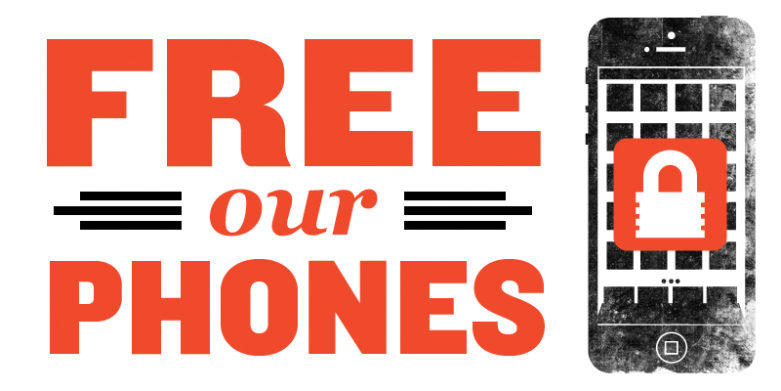
Our Chance to Free Our Phones for Real
We finally have a real chance to free our phones. Last month, more than 100,000 people told the White House that cellphone unlocking — configuring your phone so it’ll work on other networks — should be legal again.
The White House said it agreed and told Congress and the Federal Communications Commission to do something about it. Now all kinds of bills are on the table and we have a chance to make them protect our mobile freedom — for real.
In the last week, members of Congress from both sides of the aisle have been scrambling to get this done. Sen. Ron Wyden introduced the “Wireless Device Independence Act,” Sens. Amy Klobuchar, Mike Lee and Richard Blumenthal introduced the “Wireless Consumer Choice Act” and Sen. Patrick Leahy and others introduced the “Unlocking Consumer Choice and Wireless Competition Act.” Reps. Bob Goodlatte and John Conyers are planning to introduce their own bill in the coming days.
This is a great thing — it means that Congress understands the importance of mobile freedom.
But as Washington weighs the politics of this or that bill, it’s up to us — the people who depend on phones and tablets every day — to send this simple message to lawmakers:
Our phones shouldn't be locked in the first place. Imagine learning that you could use only a Comcast-compatible Mac, or only a Verizon-compatible PC. Luckily, we don't face those kinds of restrictions. Your phones and other mobile devices should be no different than those Macs and PCs you can plug into any network at home. Any bill to legalize cellphone unlocking must do the following:
- Free our phones. We shouldn’t have to ask for permission to use our devices how we want, where we want and when we want. Our laws and rules must protect our freedom to connect under all circumstances.
- Protect Internet freedom. Free expression online depends on access to open devices and networks.
- Protect privacy. Without access to the software on our phones, we can’t ever fully control our devices or protect ourselves from snooping and spying.
- Protect innovation and competition. Restrictive practices and policies — including copyright law and carriers’ terms of service — hold us back from creating the next generation of world-changing devices and software, and they hinder wireless competition.
Here's the bottom line: We shouldn’t have to rely on carriers to give us our mobile freedoms.
You can go here to urge Congress to incorporate these principles into any unlocking bill.